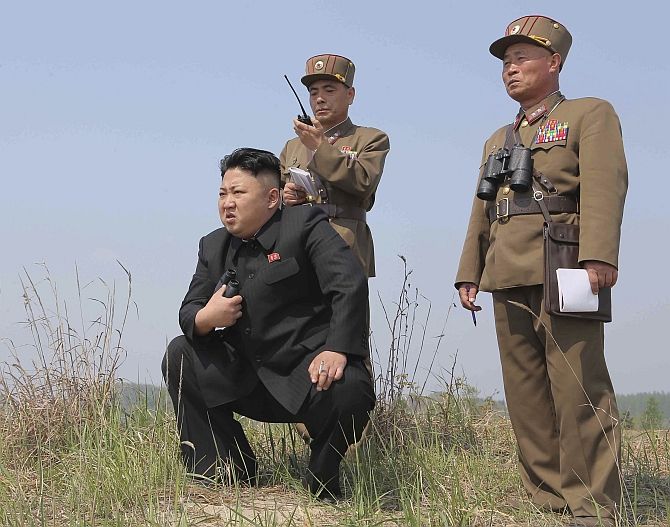
North Korea on Wednesday announced that it had successfully carried out its first hydrogen bomb test, marking a major step forward in its nuclear development, if confirmed.
"The republic's first hydrogen bomb test has been successfully performed at 10:00am on January 6, 2016, based on the strategic determination of the Workers' Party," a state television news reader announced.
The test was conducted at the Punggye-ri underground test site in the far northeast, official Korean Central News Agency said.
The explosion was first detected as a magnitude 5.1 earthquake by the US Geological Survey.
"With the perfect success of our historic H-bomb, we have joined the rank of advanced nuclear states," the announcer said, adding that the test was of a "miniaturised" device.
Only last month, during remarks made during an inspection tour, North Korean leader Kim Jong-Un had suggested Pyongyang had already developed a hydrogen bomb -- although the claim was greeted with scepticism by international experts.
"The latest test, completely based on our technology and our manpower, confirmed that our newly-developed technological resources are accurate and scientifically demonstrated the impact of our miniaturised H-bomb," the TV announcer said.
While vowing to stick by a no-first use policy, Wednesday's statement said Pyongyang would continue to pursue an advanced nuclear strike capability.
"As long as the vicious anti-North policy of the US persists, we will never stop development of our nuclear programme," it said.
The test is the second since Kim Jong Un became supreme leader and began consolidating power through a series of purges and provocations against South Korea.
Kim has rebuffed US and Chinese efforts to restart talks and has expanded the country's nuclear arsenal that he says is the best defense against a US invasion.
Will respond appropriately to provocations: US
The United States has vowed to "respond appropriately" to North Korea's "provocations".
"We will continue to protect and defend our allies in the region, including the Republic of Korea, and will respond appropriately to any and all North Korean provocations," State Department Spokesman John Kirby said in a statement.
The US at the same time said it cannot confirm the claim of North Korea.
"While we cannot confirm these claims at this time, we condemn any violation of UN Security Council Resolutions and
again call on North Korea to abide by its international obligations and commitments," Kirby said.
"We are aware of seismic activity on the Korean Peninsula in the vicinity of a known North Korean nuclear test site and have seen Pyongyang's claims of a nuclear test," he said.
The US is monitoring and continuing to assess the situation in close coordination with its regional partners.










 © 2025
© 2025